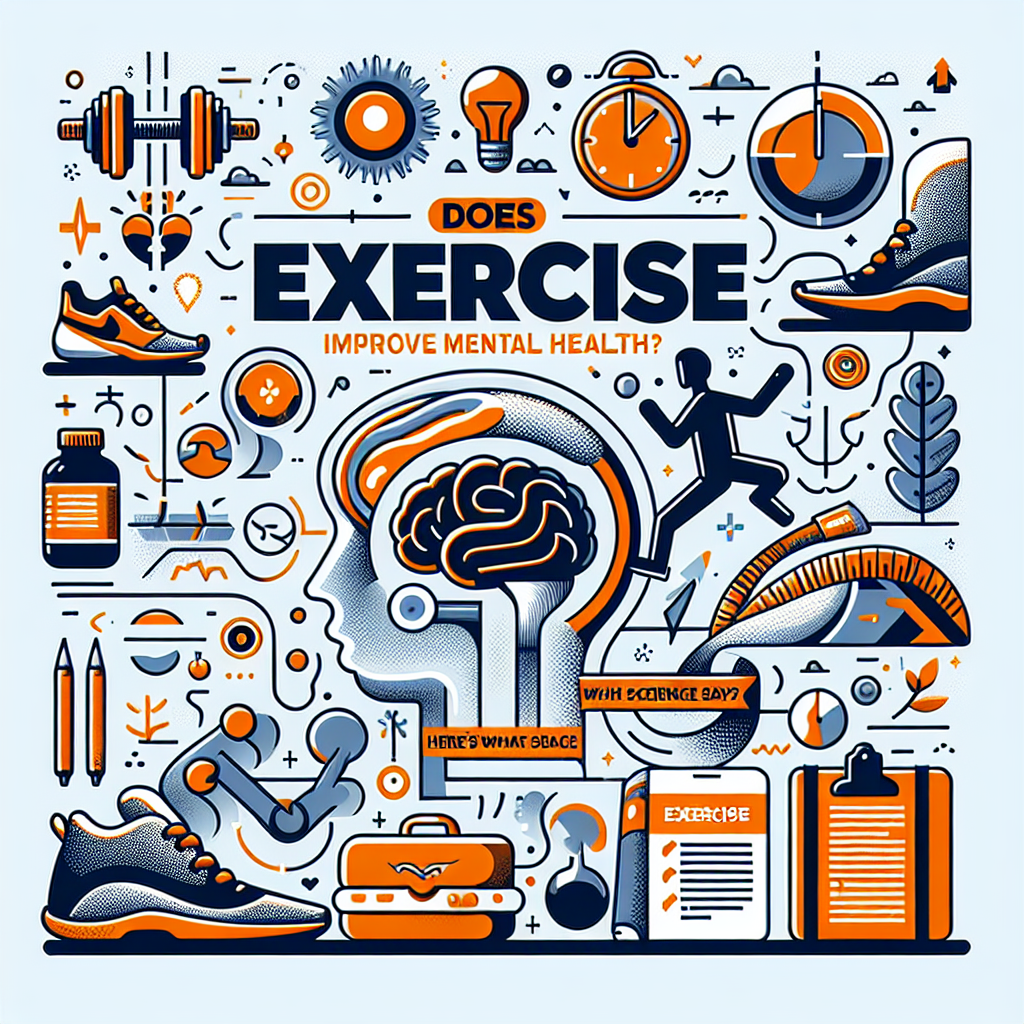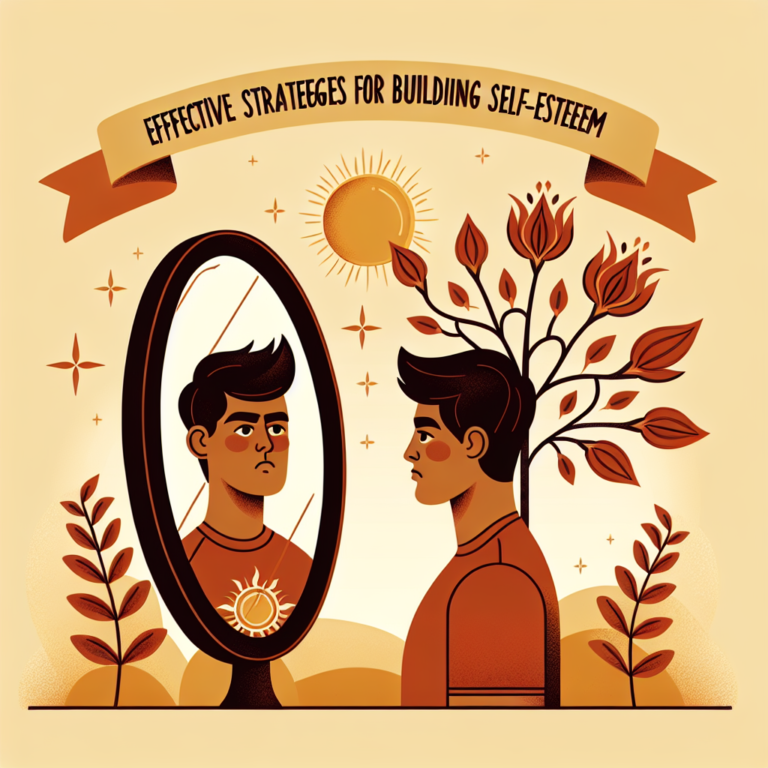
Does Exercise Improve Mental Health? Here’s What Science Says: The Ultimate Guide
Introduction
In a world where anxiety and depression are increasingly prevalent, the quest for effective treatments has never been more urgent. Many people are turning to traditional routes like therapy and medication, but there’s one powerful tool they often overlook: exercise. So, does exercise improve mental health? Here’s what science says. As we delve into this essential question, we’ll explore the profound connection between physical activity and psychological well-being, bringing you insights grounded in scientific research, enlightening case studies, and practical tips for incorporating exercise into your life.
The Science Behind Exercise and Mental Health
The Neurobiology of Exercise
Exercise does more than just sculpt our bodies; it transforms our brains. When we engage in physical activity, our body releases a cocktail of neurotransmitters, including endorphins, serotonin, and dopamine, which play essential roles in mood regulation. But how does this translate into improved mental health?
- Endorphins and Mood Enhancement: Often dubbed the “feel-good” hormones, endorphins are released during prolonged exercise, providing a natural high.
- Neurogenesis: Regular aerobic exercise fosters the creation of new neurons in the hippocampus, a brain region integral to learning and memory, and importantly, mood regulation.
- Stress Reduction: Exercise reduces levels of the body’s stress hormones, like cortisol, promoting a calmer state of mind.
Research Findings on Exercise and Mental Health
The question, "Does exercise improve mental health?" is not merely anecdotal; it is backed by a growing body of research. Recent studies indicate that:
- A 2018 meta-analysis in the Journal of Clinical Psychiatry found that exercise can significantly reduce symptoms of anxiety and depression.
- A longitudinal study published in JAMA Psychiatry (2020) reported that individuals who exercised regularly had a lower risk of developing depression over time.
- A 2021 study in Frontiers in Psychology highlighted that moderate physical activity is associated with lower levels of psychosocial distress.
Case Study: Community Exercise Programs
Community initiatives, such as group fitness classes or local running clubs, have demonstrated promising results. For instance, a notable program in Melbourne, Australia, paired running with mental health support for individuals experiencing depression. Participants reported reduced symptoms and increased social connectedness, reinforcing the notion that exercise serves as a multifaceted intervention for mental health.
How Different Types of Exercise Impact Mental Health
The benefits of exercise are not confined to any single type; different activities can yield various psychological benefits. Here’s a breakdown:
| Type of Exercise | Mental Health Benefits |
|---|---|
| Aerobic | Reduces anxiety, enhances mood |
| Strength Training | Boosts self-esteem, provides a sense of achievement |
| Yoga | Reduces stress, improves focus and relaxation |
| Outdoor Activities | Combines physical activity with exposure to nature, enhancing mood |
The Psychological Benefits of Exercise
Building Resilience Through Physical Challenge
Engaging in physical challenges can lead to improved psychological resilience. By pushing our physical boundaries, we also cultivate mental toughness. Case studies from athletic training programs indicate that athletes often experience lower levels of stress, anxiety, and depression compared to the general population because of the challenges they embrace through training.
The Social Aspect: Community and Connection
One of the greatest advantages of group exercise is the sense of community it fosters. Participating in team sports or group fitness classes not only helps with accountability but also creates a network of social support. Individuals in such settings often report feeling more connected, which directly enhances their mental well-being.
The Role of Routine
Incorporating exercise into your life establishes a routine that can provide structure and predictability, particularly beneficial during times of stress. Routine has been shown to mitigate feelings of chaos and helplessness—a common experience for those dealing with mental health issues.
Practical Tips for Incorporating Exercise Into Your Mental Health Regimen
Small Steps Matter
You don’t need to run a marathon to reap the mental health benefits of exercise. Start with small, manageable activities:
- Short Walks: Aim for 15-30 minutes a day. Walking has been proven to enhance mood and reduce anxiety.
- Home Workouts: Bodyweight exercises can be done anywhere; no gym is required!
- Join a Class: Choose something you enjoy—be it Zumba, yoga, or martial arts.
Set Realistic Goals
Establishing realistic, achievable fitness goals can foster a sense of accomplishment. Whether it’s completing a five-kilometer run or mastering a new yoga pose, each progression can improve self-esteem and motivation.
Mind Your Mindset
Focus on the journey rather than the outcome. Shift the goal from losing weight to feeling energized or decreasing stress. This can transform exercise from a chore into a fulfilling activity.
Conclusion
The overwhelming evidence suggests that the answer to "Does exercise improve mental health?" is a resounding yes. From the biochemical changes within the brain to the social connections formed through physical activity, exercise presents a multifaceted approach to enhancing psychological well-being. Whether you’re battling anxiety, dealing with depression, or simply looking to boost your mood, integrating exercise into your daily routine offers tangible benefits.
Remember, it’s not about perfection; it’s about progress. Every step counts, every drop of sweat matters, and every moment spent moving is a moment invested in your mental health. Start today, and embrace the journey toward a healthier mind and body.
FAQs
1. How often should I exercise to improve my mental health?
Aim for at least 150 minutes of moderate aerobic exercise per week, or around 30 minutes most days.
2. What type of exercise is best for mental health?
Aerobic exercise, strength training, yoga, and any activity that combines social interaction can greatly benefit mental health.
3. Can exercise replace medication for mental health issues?
While exercise has shown significant benefits, it should not replace prescribed medications without consulting a healthcare professional.
4. How long does it take to see mental health improvements from exercise?
Many individuals report improved mood and reduced anxiety after just a few weeks of consistent activity.
5. Do I need to go to a gym to reap these benefits?
No! Numerous exercises can be performed at home or outdoors, many of which require little to no equipment.
Ultimately, exercise is a powerful ally in the journey toward mental well-being. By weaving physical activity into your life, you embark on a path toward better emotional health—one step at a time. So, get moving, and let the healing begin!

















